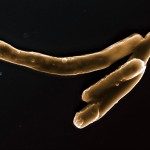Lien vers Pubmed [PMID] – 15687025
Tuberculosis (Edinb) 2005 Jan-Mar;85(1-2):29-38
The TB Vaccine Cluster project funded by the EU Fifth Framework programme aims to provide novel vaccines against tuberculosis that are suitable for evaluation in humans. This paper describes the studies of the protective efficacy of vaccines in a guinea pig aerosol-infection model of primary tuberculosis. The objective was to conduct comparative evaluations of vaccines that had previously demonstrated efficacy in other animal models. Groups of 6 guinea pigs were immunized with vaccines provided by the relevant EU Vaccine Cluster partners. Survival over 17 or 26 weeks was used as the principal measure of vaccine efficacy following aerosol challenge with H37Rv. Counts of mycobacteria in lungs and spleens, and histopathological changes in the lungs, were also used to provide evidence of protection. A total of 24 vaccines were evaluated in 4 experiments each of a different design. A heterologous prime-boost strategy of DNA and MVA, each expressing Ag85A and a fusion protein of ESAT-6 and Ag85B in adjuvant, protected the guinea pigs to the same extent as BCG. Genetically modified BCG vaccines and boosted BCG strategies also protected guinea pigs to the same extent as BCG but not statistically significantly better. A relatively high aerosol-challenge dose and evaluation over a protracted time post-challenge allowed superior protection over BCG to be demonstrated by BCG boosted with MVA and fowl pox vectors expressing Ag85A.

